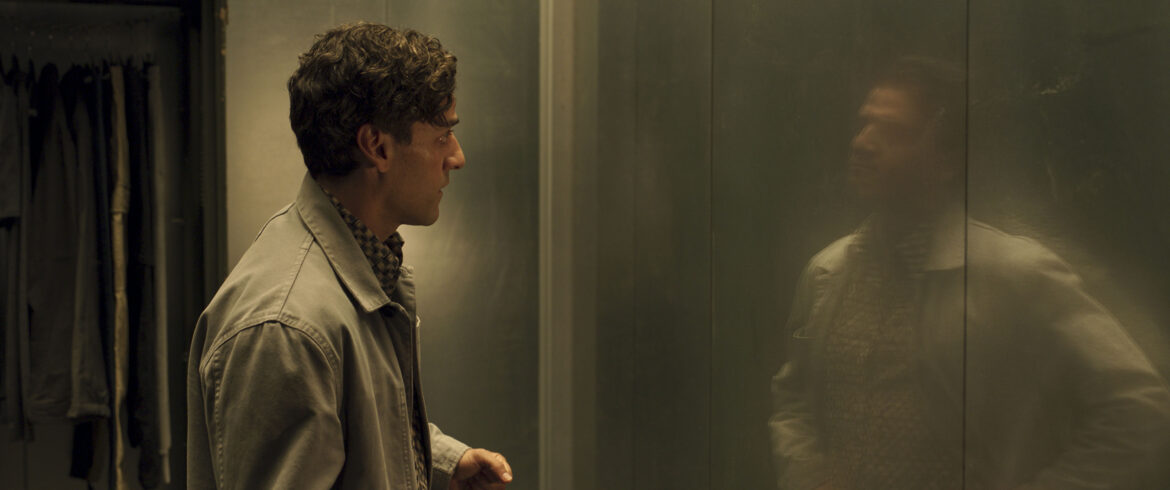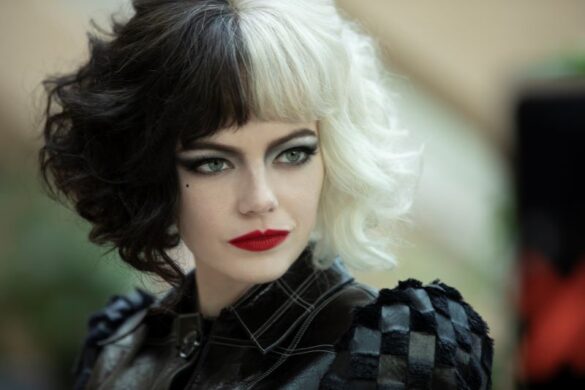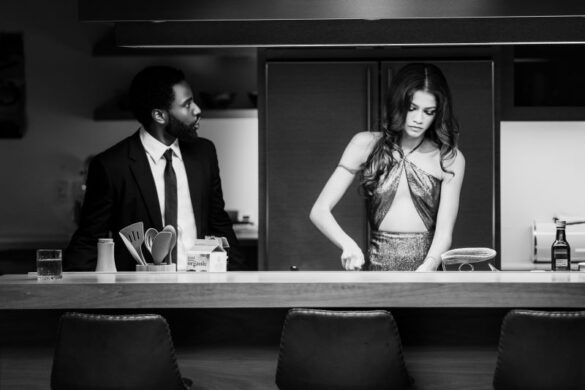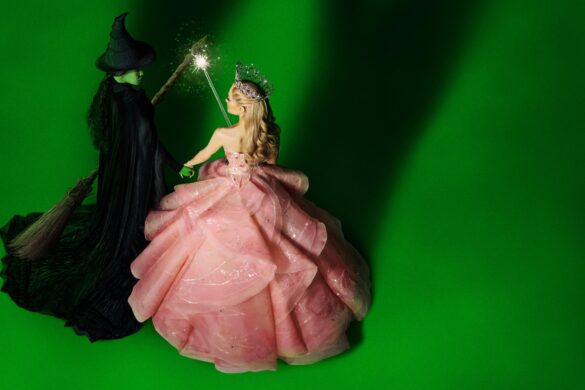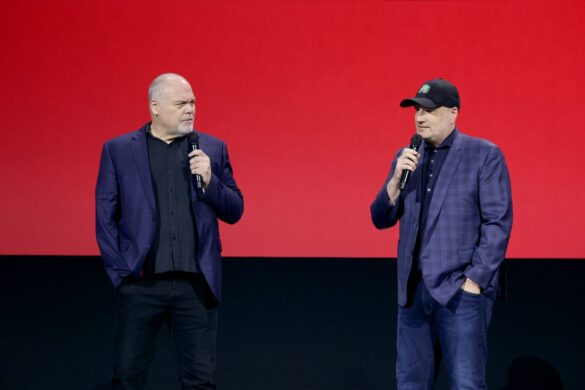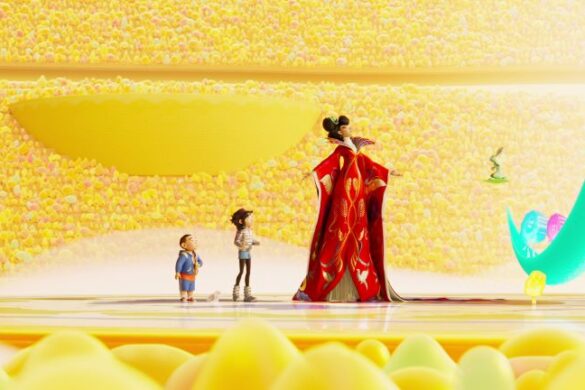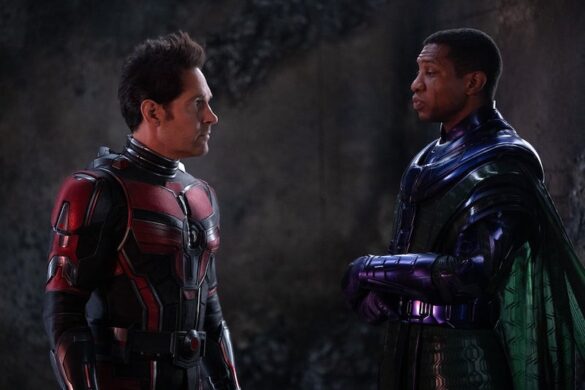As Marvel Studios steps away from the decade-long Infinity War saga that began in 2008, the Marvel Cinematic Universe expands in bold and new ways. There’s more representation to their content as a film or a streaming series, which brings us a more nuanced and layered collective story to the MCU. And “Moon Knight” proves that Marvel Studios content has so much more to offer than just a superhero engaged in a fight between good vs. evil. The upcoming Disney+ series explores the complexities of mental health through the lens of the superhero genre while also honoring Egyptian culture that has been long depicted disgracefully in more prominent American mainstream media.
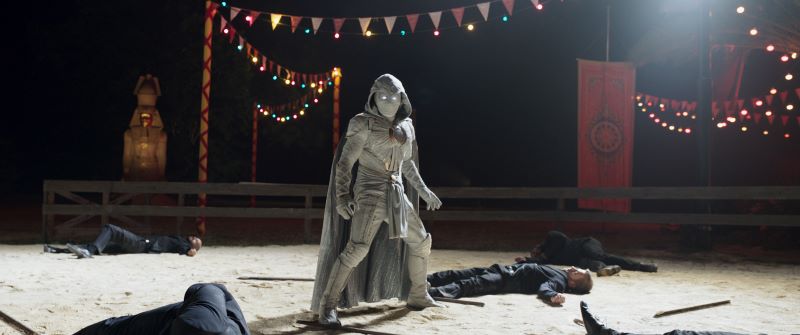
Having directed four of the six episodes (only four were provided for this review), Mohamed Diab gives us a deep dive into the complexities of a superhero struggling with a dissociative identity disorder. Allowing us to see these characters through different perspectives of these identities gives us a multilayered story that maintains its cohesiveness despite the personality shifts and genre-hopping.
And while “Moon Knight” exists within the realm of the Marvel Cinematic Universe, it, for the most part, stays outside of the MCU purview. As a result, there might not be any apparent connections to any events, ut there may be a few subtle ones. But, of course, the lack of those connections may have to do more with the show’s tone and how the title character questions the nature of the reality or how they might want to keep the surprises from leaking out. That said, fans are in for one wild ride down the MCU rabbit hole. One that is dark, twisted, and mind-bending.
Our introduction to the show starts with Steven Grant (Oscar Isaac), a mild-mannered and very timid museum shopkeeper overcome with social anxiety. He also has a sleeping disorder, which only adds to his frustrations. Pushed around by his boss, mocked by his co-workers, Grant has difficulty making connections with anyone. In fact, the only people he socializes with are his pet one-finned goldfish, his mother – whom we never see -, and a living statue.
His attempts to sleep are often thwarted by a constant practice of listening to self-help staying awake practices, which is where he gets his knack for puzzles and a wealth of Egyptology. While Steven makes for a sympathetic character we can immediately connect with, the show takes its classic MCU twist when Steven awakens in a mysterious land and doesn’t know how we got there. The fact that he hears strange voices only adds to the confusion. And his life being threatened by Arthur Harrow (Ethan Hawke), who demands that Steven gives him a golden scarab, makes things even more complicated.
Harrow, who likens to a cult leader, uses the powers of Ammit to judge those who are good and pure and takes life for those who may have sinned, even though they have yet to commit the actual sin. A sort of play on judgment comes before the crime. Harrow holds a great deal of power over his followers, who are willing to do anything for him. Like, take the scarab by any means necessary. The chase leaves a confused Steven with minimal options. That is, until, Khonshu, the voice from earlier, gets Marc (also Isaac) to take over the body to fend off the attacks.
And in a brilliant display of shifting personalities, the scene strobes indicating the change. But there are noticeable gaps within the chase that add to Steven and the audience’s confusion. For example, how exactly did Harrow’s followers surround Steven one moment, only to end up dead a second later? These momentary gaps may leave us wanting to know more, especially how someone like Steven could fight his pursuers. And then things lean into that psychological confusion when Steven takes the chase on the road. During a car chase that takes the three characters that inhabit one body through a mountain range and then, somehow, someway, back to London, where Steven has not only lost track of time but is on his way to losing his sanity.
From Marc to Khonshou, the voices Steven hears either become louder or start to materialize only before him and no one else. So not only is Steven going mad, others begin to put a distance between themselves and him. And to make things worse, Harrow has followed him to London in hopes of retrieving the scarab and summons undead jackals to fetch it.
Of course, a fearful Steven is unsure if anything he sees is real or not. The scared shopkeeper then hides in the restroom, hoping that everything will pass. Though the plan doesn’t work – has it ever in any horror content – Steven finds himself hearing those same voices once more and looks to a mirror to see a strong and fearless Marc suggest that he take over. Weak in the mind and scared witless, Marc forcibly takes over and beats the jackal senselessly.
And that’s just the opening act. Subsequent episodes then get into the psychology of Marc having to struggle with juggling these multiple personalities and having an Egyptian deity with a thirst for justice in his head.
Later episodes are an exercise in genre-hopping as it goes from a mind-bending psychological thriller with a touch of horror to a dark globe-trotting treasure hunting adventure. While it may not seem like a cohesive piece of work at first, it leads to the characters questioning their reality and the audience’s confusion and turns into something fresh, unique, and still very much a Marvel Studios product.
There is plenty of complicated character work, especially from Marc and Steven’s perspectives, as the two often find themselves in conflict with each other and Khonshou. Neither one wants to relinquish control to the other if the situation calls for it. In some cases, Marc’s skills as a mercenary would be practical during a fight, whereas Steven’s knowledge of Egyptology would be necessary for solving puzzles and charting stars. And as we dive into their mental states, we are introduced to Layla (May Calamawy), Marc’s wife. She is the audience’s means of understanding Marc and Steven’s internal struggles. Where Steven lacks the confidence to become Moon Knight and is overcome with fear, we see a kinder, gentler Layla who nurtures the personality. In contrast with Marc, Layla has a sterner approach.
Isaac’s dual roles provide that juicy character work we all crave, but it also adds to the complexity. Not only do we question the nature of the reality that Marc and Steven struggle with, but because there are gaps and the characters are keeping secrets from each other, it’s hard to trust them as storytellers. This isn’t a determent to the series, but rather an exciting way to tell the story and have us guessing throughout. And there will be plenty of surprises as well as unexpected twist and turns that keeps all of us engaged from beginning to end.
Of course, that requires plenty of dense exposition, one that cannot be summarized in a review like this. But a lot of the mythology is covered in other episodes, including the relationships between the gods and their human avatars and Harrow’s mission. And while Harrow’s beliefs reflect Thanos. His approach to judging those before any crime is committed adds a splash of fear to the prophetic villain type. Hawke is terrifying as Harrow as followers are willing to put their life on the life to be judged and obtain the scarab for him, knowing full well that they could die should the scale not tip in their favor. The words are manipulative, but it gets results, as noted by the peaceful commune that Harrow has built. He even uses it to convince Khonshou’s fellow gods that the Egyptian deity is the one who is unhinged and leaving his avatars in a great deal of pain.
It would have been easy for the show to be about Marc and Steven vying for control of the body and using that struggle as humor. But the show takes the subject matter seriously, often pointing out the harsh reality of those unwilling to help people like Steven. However, it also offers hope, as other characters provide therapeutic help. Again, it’s refreshing to see those nuances through the lens of a superhero series like “Moon Knight.”
And Isaac’s commitment to the character work and the personality changes make for a more fully-formed character. These aren’t just one-dimensional personalities at play. These are all characters we can connect with on certain levels. Whether that’s Steven’s struggles with sleep and social anxiety or Marc’s confidence and fearlessness, seeing that duality makes for interesting internal character dynamics as the two have to convince the other to relinquish control. What’s more, Isaac can make these sudden changes effortlessly. While that may be difficult to keep up with, the small nuances in the tones of voice and body language help us recognize which character is front and center.
But having to play two roles in one body is one thing. It’s something else when another character like Layla acts opposite of whoever is in front of her. She has to adapt to those personality changes and navigate how she speaks to each of those personalities. It’s certainly not easy, and it gives us an idea of what family members and nurses have to go through with those who share those experiences. But it’s not all dark and depressing, as both personalities use Khonshu to summon their own unique super-powered suits.
And as the mystery behind Khonshu and Marc and Steven’s state of mind begin to unfurl, “Moon Knight” finds another exciting way to keep us fully engaged with the story and wanting more. Clearly, the twist and turns that come with each episode will give Marvel fans plenty to create theories and have us question what we are watching.
To say that “Moon Knight” is one of Marvel Studios’ darkest streaming series to date would be a vast understatement. While they are willing to push the envelope with the storytelling content, visuals, and brutality, it’s still a Marvel product. The show is still playful with its quirky humor, exciting comic book action, and expansive with its intriguing mythologies. The entire series feels like an amalgamation of “Us” and “Indiana Jones” but with an MCU flair. While exploring genres isn’t entirely new, it’s certainly refreshing to see the studio have fun with bending horror and action-adventure to their whim.
And director Mohamed Diab delivers us a far more interesting take on the superhero origins story by finding the nuances in mental illness and adding cultural authenticity to the Egyptian deity’s mythology. Additionally, Diab also changes the media’s outdated perception of Egypt by subverting those outdated tropes and giving audiences something more contemporary and an image of how Egyptians should be seen. It also reaffirms Marvel Studios’ commitment to bringing more diversity and inclusion across the board to their projects. While it’s great to see more people of color represented on screen, MCU films and shows have also given space from the disabled community in deaf characters like Makaari and Maya Lopez and the LGBTQ+ community for bisexual and gender-fluid characters like Loki. So having someone like Steven Grant and Marc Spector, who struggles with dissociative identity disorder, adds a layer to that representation.
The first four episodes of “Moon Knight” feel like Marvel Studios is willing to push the envelope when it comes to the brutality in their action sequences, storytelling, and visuals. At times, it feels like Marvel Studios lets the showrunners and directors tell their stories and veer away from the arcs we are so familiar with that Marvel has established in The Infinity Saga. Nevertheless, the move is a step in the right direction for the MCU as it ends in an unknown territory, especially since we have no idea what’s at the end of his current phase.
“Moon Knight” debuts on Disney+ on March 30, 2022.

